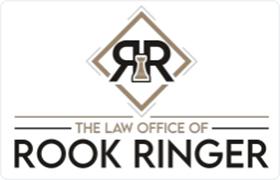Saint Augustine White Collar Crime Lawyer, Florida
Sponsored Law Firm
-
 x
x

Click For More Info:
-
The Law Offices of Rook Ringer
1 Main St. Saint Augustine, FL 32084» view mapCriminal Defense Get On The Path To Results Today
Let us help you figure out your best next steps are. The sooner you have a plan of action, the better your chances of taking the correct steps to get the results you want.
800-819-8041
Kendra L. Bunn
✓ VERIFIED *Status is reviewed annually. For latest information visit hereWhite Collar Crime, Education, Immigration, Employment, International
Since 1999, Ms. Bunn has dedicated her entire career to the practice of immigration law. She was one of the first female attorneys to practice immigra... (more)
Neil Gornto
Traffic, White Collar Crime, DUI-DWI, Criminal
Status: In Good Standing *Status is reviewed annually. For latest information visit here
FREE CONSULTATION
CONTACTTerry J. Shoemaker
White Collar Crime, Corporate, Criminal
Status: In Good Standing *Status is reviewed annually. For latest information visit here Licensed: 22 Years
Katharine Riley Bird
Electronic Commerce, Health Care Other, White Collar Crime
Matthew Stewart Brown
Civil Rights, White Collar Crime, Education, Trusts, Contract
Status: In Good Standing *Status is reviewed annually. For latest information visit here Licensed: 25 Years
Matthew Stewart Brown
Civil Rights, White Collar Crime, Education, Trusts, Contract
Status: In Good Standing *Status is reviewed annually. For latest information visit here Licensed: 5 Years
Bruce Parker Culbert
White Collar Crime, DUI-DWI, Criminal
Status: In Good Standing *Status is reviewed annually. For latest information visit here
Jesse Barron Wilkison
White Collar Crime, Criminal, Civil Rights, Licensing, Collection
Status: In Good Standing *Status is reviewed annually. For latest information visit here Licensed: 10 Years
Brett Harold Burkett
Juvenile Law, White Collar Crime, DUI-DWI, Business
Status: In Good Standing *Status is reviewed annually. For latest information visit here Licensed: 13 Years
Sheldon Carter Worrell
White Collar Crime, DUI-DWI, Commercial Insurance, Banking & Finance
Status: In Good Standing *Status is reviewed annually. For latest information visit here
 Rook Ringer Saint Augustine, FL
Rook Ringer Saint Augustine, FL Practice AreasExpertise
Practice AreasExpertise
